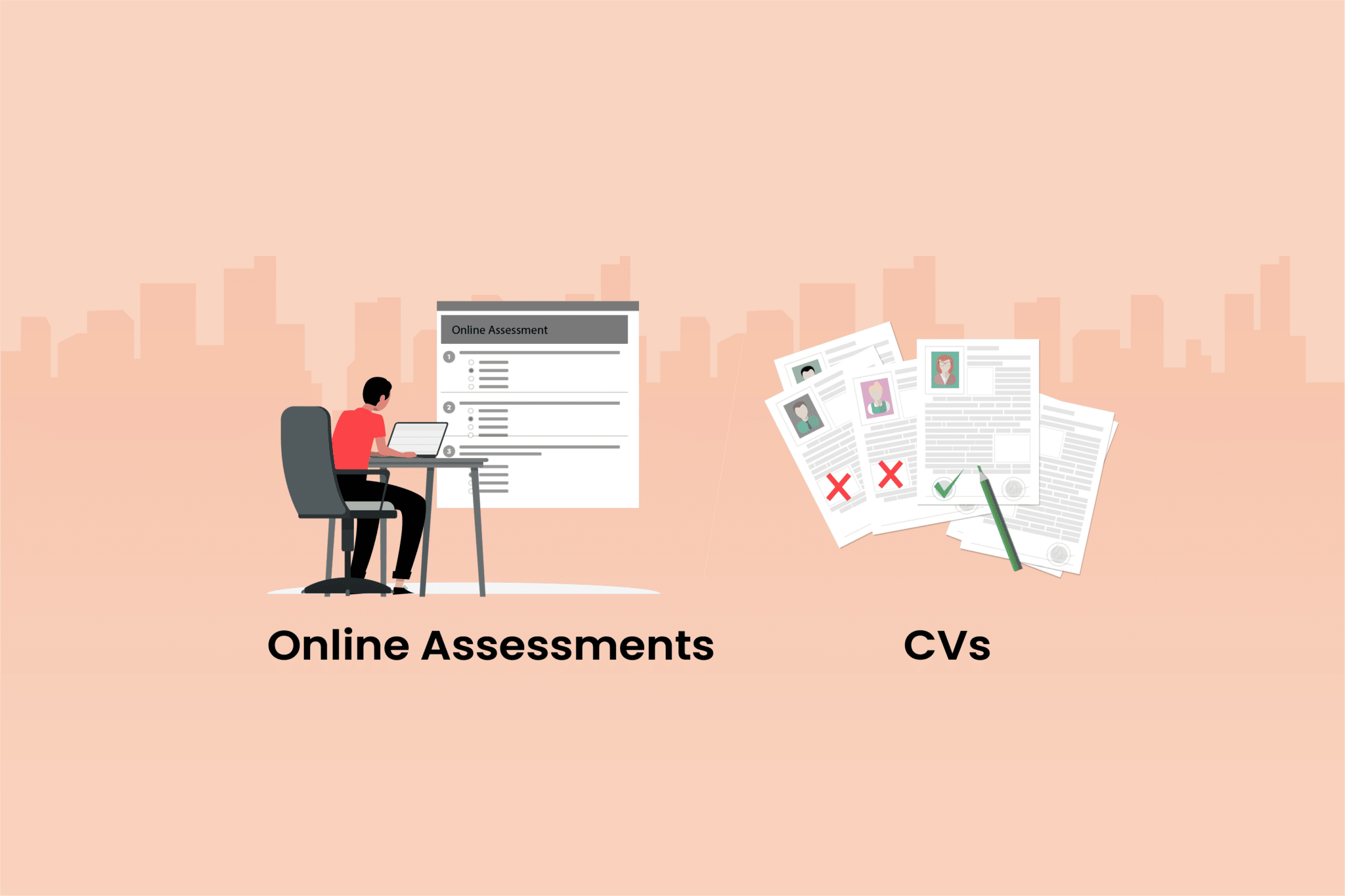In the ever-evolving landscape of recruitment, the quest for the perfect candidate continues to be a challenge for recruiters. Beyond technical skills and qualifications, the significance of assessing candidates’ emotional intelligence (EI) has grown exponentially in recent years. Emotional intelligence tests have emerged as invaluable tools for recruiters seeking to identify individuals who not only possess the requisite job-related skills but also have the ability to navigate the complexities of the modern workplace.
In this comprehensive guide, we will explore the reasons why emotional intelligence tests have gained prominence and why they are now more important than ever for recruiters. We will delve into the concept of emotional intelligence, its relevance in today’s professional world, and how it can impact organizational success. Moreover, we will discuss the various types of emotional intelligence tests, how to use them effectively in the hiring process, and the benefits they bring to the table.
Understanding emotional intelligence
Before delving into the reasons for the growing importance of emotional intelligence tests in recruitment, let’s first establish what emotional intelligence is and why it matters.
What is emotional intelligence?
Emotional intelligence, often abbreviated as EI or EQ (emotional quotient), refers to the ability to recognize, understand, manage, and effectively use emotions in ourselves and in our interactions with others. It encompasses a range of skills and competencies, including:
Self-Awareness: The capacity to recognize and understand one’s own emotions, strengths, weaknesses, and triggers.
Self-Regulation: The ability to manage and control one’s emotions, impulses, and reactions, even in challenging situations.
Empathy: The skill of recognizing and understanding the emotions and perspectives of others, fostering better interpersonal relationships.
Social Skills: The aptitude for effective communication, conflict resolution, and collaboration with others.
Why emotional intelligence matters
Now that we have a basic understanding of emotional intelligence, it’s important to grasp why it holds significant relevance in the modern professional landscape.
Enhanced interpersonal relationships
In the workplace, strong interpersonal relationships are essential for teamwork, collaboration, and productivity. Individuals with high emotional intelligence tend to communicate effectively, resolve conflicts amicably, and build strong connections with their colleagues. Recruiting candidates with high EI can lead to a more harmonious and efficient work environment.
Leadership effectiveness
Effective leadership demands more than just technical expertise; it requires the ability to inspire and motivate others. Leaders with high emotional intelligence can connect with their team members on a deeper level, understand their needs, and provide the necessary support and guidance. This results in higher employee engagement and better overall organizational performance.
Adaptability and resilience
The modern workplace is marked by constant change and unpredictability. Individuals with high emotional intelligence are better equipped to adapt to new challenges and bounce back from setbacks. They exhibit resilience in the face of adversity, making them valuable assets in fast-paced industries.
Conflict resolution
Conflict is inevitable in any organization. However, individuals with strong emotional intelligence possess the skills to manage and resolve conflicts constructively. They can navigate difficult conversations, find common ground, and facilitate peaceful resolutions, contributing to a more harmonious work environment.
Customer-centric approach
For customer-facing roles, emotional intelligence is particularly crucial. Employees with high EI can empathize with customers, understand their needs, and provide exceptional service. This can significantly impact customer satisfaction and loyalty.
The rising importance of emotional intelligence tests
With the understanding of what emotional intelligence is and why it matters, let’s delve into why emotional intelligence tests are gaining prominence in the recruitment process.
Improved hiring decisions
Recruiters are under constant pressure to make well-informed hiring decisions that align with an organization’s culture and values. Emotional intelligence tests provide valuable insights into a candidate’s ability to work effectively with others, manage stress, and handle the demands of the role. By incorporating emotional intelligence tests into the hiring process, recruiters can make more informed choices about candidates who are likely to excel in their roles.
Reducing turnover
High employee turnover can be a significant cost for organizations. It disrupts workflow, requires additional resources for recruitment and training, and can impact team morale. Emotional intelligence tests can help identify candidates who are not only technically competent but also have the emotional resilience and interpersonal skills to thrive in the organization’s environment. This can lead to a reduction in turnover rates.
Enhancing Team dynamics
A cohesive and productive team is essential for achieving organizational goals. Emotional intelligence tests can aid recruiters in forming teams that are not only diverse in skills but also compatible in terms of emotional intelligence. This compatibility can lead to improved team dynamics, better collaboration, and ultimately, increased productivity.
Promoting diversity and inclusion
Diversity and inclusion have become critical priorities for many organizations. Emotional intelligence assessments can help mitigate unconscious biases in the hiring process by focusing on the candidate’s emotional competencies rather than solely on their resume or background. This can contribute to a more diverse and inclusive workforce.
Identifying leadership potential
Identifying individuals with high emotional intelligence is crucial when grooming future leaders within an organization. Leadership positions often require strong interpersonal skills, empathy, and the ability to inspire and motivate others. Emotional intelligence tests can assist in pinpointing candidates with leadership potential early in their careers.
Types of emotional intelligence tests
Now that we’ve established why emotional intelligence tests are important, it’s essential to explore the various types of emotional intelligence tests available for recruiters.
Self-report assessments
Self-report assessments are questionnaires or surveys that candidates complete to provide insights into their emotional intelligence. Candidates respond to statements or scenarios related to emotions, interpersonal relationships, and workplace situations. These assessments are valuable for gaining a candidate’s self-perception of their emotional intelligence.
360-degree assessments
360-degree assessments involve gathering feedback from multiple sources, including peers, supervisors, and subordinates, about a candidate’s emotional intelligence. This comprehensive approach provides a well-rounded view of the candidate’s interpersonal skills and how they are perceived by others in the workplace.
Situational judgment tests
Situational judgment tests present candidates with hypothetical workplace scenarios and ask them to choose the most appropriate course of action. These assessments measure a candidate’s ability to apply emotional intelligence in practical situations, making them highly relevant for job roles that require strong interpersonal skills.
Performance-based assessments
Performance-based assessments involve candidates participating in role-playing exercises or simulations that mimic real workplace situations. Recruiters can observe how candidates handle emotional challenges, make decisions, and interact with others in a controlled environment.
Implementing emotional intelligence tests effectively
To make the most of emotional intelligence tests in the recruitment process, recruiters should follow some best practices:
Define desired emotional competencies
Before administering emotional intelligence tests, recruiters should clearly define the emotional competencies that are essential for success in the role. This ensures that the assessments are aligned with the specific requirements of the job.
Combine emotional intelligence tests with traditional methods
While emotional intelligence tests are valuable, they should not be the sole basis for hiring decisions. Combining emotional intelligence tests with traditional interviews, reference checks, and skills assessments provides a comprehensive view of the candidate.
Train recruiters and hiring managers
Recruiters and hiring managers should be trained in interpreting emotional intelligence assessment results. They should understand the competencies being measured and how they relate to the job role.
Maintain confidentiality and transparency
It’s crucial to maintain the confidentiality of assessment results and communicate transparently with candidates about the purpose and use of emotional intelligence tests in the hiring process.
Continuously evaluate and adapt
The recruitment landscape is constantly evolving. Recruiters should regularly evaluate the effectiveness of emotional intelligence assessments in their hiring processes and make adjustments as needed.
The benefits of embracing emotional intelligence tests
As recruiters increasingly embrace emotional intelligence tests, they can expect to reap several benefits that can positively impact their organizations:
Improved organizational culture
Recruiting individuals with high emotional intelligence can have a transformative impact on an organization’s culture. Employees who excel in emotional intelligence tend to foster a more positive and inclusive work environment. They are adept at building strong interpersonal relationships, empathizing with their colleagues, and resolving conflicts constructively.
This positive cultural shift can result in higher levels of employee satisfaction, engagement, and retention. When employees feel understood, valued, and supported, they are more likely to be motivated and committed to their work. Moreover, a culture that prioritizes emotional intelligence tends to be more collaborative, fostering teamwork and creativity.
Ultimately, an improved organizational culture creates a virtuous cycle where employees thrive, leading to enhanced performance, increased loyalty, and a positive reputation in the job market. Organizations that recognize the value of emotional intelligence in shaping culture are better positioned to attract top talent and establish themselves as employers of choice.
Enhanced employee performance
One of the most tangible benefits of recruiting individuals with strong emotional intelligence is the significant enhancement in employee performance. These individuals possess the ability to manage stress, adapt to changes, and collaborate effectively with colleagues, all of which contribute to increased productivity and job satisfaction.
Emotionally intelligent employees are better equipped to navigate the challenges of the modern workplace. They can handle pressure and setbacks with composure, allowing them to maintain focus and productivity even in high-stress situations. Additionally, their capacity to understand and manage their own emotions enables them to stay motivated and engaged in their roles.
Furthermore, employees with high emotional intelligence excel in interpersonal relationships. They communicate more effectively, resolve conflicts amicably, and build stronger working relationships with colleagues. This not only enhances teamwork but also promotes a positive work atmosphere that fosters innovation and creativity.
In summary, the presence of emotionally intelligent individuals within an organization directly contributes to enhanced employee performance. Their ability to thrive in diverse and demanding work environments ultimately leads to greater job satisfaction, higher productivity, and a more successful and competitive organization.
Reduced conflict and turnover
Recruiters play a pivotal role in minimizing workplace conflicts and reducing turnover rates by identifying candidates with the right emotional competencies. Individuals with high emotional intelligence are adept at recognizing and managing their emotions, as well as understanding and empathizing with others. These skills are invaluable in preventing and resolving conflicts.
Conflict resolution is significantly more effective when team members possess emotional intelligence. They can engage in open, empathetic communication, find common ground, and reach mutually beneficial solutions. This not only maintains a harmonious work environment but also preserves valuable working relationships.
Moreover, emotional intelligence contributes to reduced turnover rates. Employees who feel understood, valued, and supported are more likely to stay with their current employer. This not only saves organizations recruitment and training costs but also ensures the continuity of valuable institutional knowledge and expertise.
Overall, recruiters who prioritize emotional intelligence assessments can have a substantial impact on an organization’s stability and workplace dynamics. By selecting candidates who possess the emotional competencies needed to navigate challenges and conflicts effectively, recruiters contribute to a more cohesive and resilient workforce.
Competitive advantage
Organizations that prioritize emotional intelligence in their recruitment process gain a distinctive competitive advantage. This strategic focus on emotional intelligence equips them to attract and retain top talent in a highly competitive job market.
Emotionally intelligent employees contribute to enhanced organizational performance and productivity. Their ability to navigate complex interpersonal relationships and work effectively in diverse teams fosters innovation and problem-solving. This can result in increased efficiency and the development of new products or services, positioning the organization ahead of competitors.
Furthermore, a workforce characterized by high emotional intelligence often experiences lower turnover rates, reducing the disruption and costs associated with recruitment and training. This stability allows organizations to build long-term relationships with their employees and fosters a positive employer brand.
Ultimately, organizations that recognize the critical role of emotional intelligence gain a reputation as employers of choice. This reputation not only attracts top talent but also helps retain existing high-performing employees. The cumulative effect is a competitive edge that extends beyond the recruitment phase and contributes to sustained success and market leadership.
Leadership development
Identifying and nurturing individuals with high emotional intelligence early in their careers is an investment in effective leadership development. Emotional intelligence is a key factor in leadership effectiveness, as leaders are required to inspire, motivate, and guide their teams.
Candidates with strong emotional intelligence exhibit qualities such as empathy, self-awareness, and interpersonal effectiveness. These qualities are essential for leaders who need to connect with team members on a deeper level, understand their needs, and provide the necessary support and guidance.
When organizations identify and groom individuals with high emotional intelligence, they are building a pipeline of capable leaders who can navigate complex challenges, foster innovation, and lead teams to success. These leaders are better equipped to handle the intricacies of the modern workplace and adapt to changing environments.
Furthermore, effective leadership development programs that incorporate emotional intelligence assessments can accelerate the growth and potential of emerging leaders. By providing targeted training and coaching to enhance their emotional competencies, organizations ensure that their leadership cadre is well-prepared to guide the organization’s future and achieve sustained success.
Addressing potential challenges
While emotional intelligence tests offer numerous advantages, it’s essential to be aware of potential challenges and limitations:
Subjectivity
Emotional intelligence assessments, while valuable, do come with a notable challenge: subjectivity. This aspect arises from the fact that these assessments often rely on individuals’ self-reporting or feedback from others, introducing the potential for bias and inaccuracies in the assessment process.
Self-reporting, in particular, can be influenced by an individual’s self-perception and social desirability bias, where candidates may provide responses they believe align with what is expected rather than their true emotional tendencies. Similarly, feedback from others can be swayed by the evaluator’s own perceptions and biases.
To mitigate the impact of subjectivity, it is crucial for recruiters to consider multiple data points when assessing emotional intelligence. Combining self-assessment with objective measures, such as situational judgment tests or performance-based assessments, can provide a more comprehensive and accurate view of a candidate’s emotional competencies. Additionally, thorough training for both candidates and evaluators can help minimize the influence of subjectivity on assessment outcomes, ensuring a fair and reliable evaluation of emotional intelligence.
Cultural sensitivity
Cultural sensitivity is a vital consideration when using emotional intelligence tests in the recruitment process. These assessments may not always be culturally neutral, and cultural differences can significantly influence the interpretation of emotional competencies.
Cultural norms and values can shape how individuals perceive and express emotions. What is considered emotionally intelligent behavior in one culture may differ from another. For example, the display of emotions or the approach to conflict resolution can vary widely across cultures.
Recruiters must be aware of these cultural nuances and exercise caution when applying emotional intelligence assessments across diverse candidate pools. Failure to do so can lead to unfair advantages or disadvantages for certain individuals based on their cultural backgrounds.
To address cultural sensitivity concerns, recruiters should seek assessments that have been validated across a range of cultural groups and, ideally, have been adapted or customized to account for cultural differences. Additionally, it is essential to involve culturally diverse evaluators in the assessment process to ensure a more balanced and culturally sensitive evaluation of candidates’ emotional intelligence.
Ethical considerations
Ethical considerations are paramount when incorporating emotional intelligence assessments into the recruitment process. Recruiters have a responsibility to handle assessment results with sensitivity and adhere to ethical guidelines to safeguard candidates’ rights and privacy.
Confidentiality and informed consent are key ethical principles to uphold. Candidates should be informed about the purpose of the assessment, how their data will be used, and their rights in relation to the assessment process. Recruiters must ensure that assessment results are kept confidential and used only for the intended purpose of evaluating suitability for a specific role.
Furthermore, ethical concerns may arise if assessment results are used to discriminate against candidates based on their emotional intelligence profiles or if the assessments themselves are biased against certain groups.
To maintain ethical integrity in the use of emotional intelligence assessments, recruiters should stay informed about relevant laws and regulations governing data privacy and discrimination. Regular training and adherence to industry standards for ethical assessment practices are essential to ensure a fair and respectful evaluation process for all candidates.
Resource investment
Implementing emotional intelligence assessments can be a valuable addition to the recruitment process, but it also entails a resource investment, both in terms of time and technology. Recruiters should carefully assess the cost-benefit ratio to determine if such assessments align with their organization’s goals and priorities.
Time is a significant resource consideration. Developing, administering, and evaluating emotional intelligence assessments can extend the recruitment timeline. Recruiters should weigh the potential benefits of improved candidate selection and organizational performance against the time required for these assessments.
Additionally, technology plays a role in the resource investment. Using sophisticated emotional intelligence assessment tools and platforms may require financial investment, especially for larger-scale recruitment efforts. Smaller organizations may need to consider whether the benefits of enhanced candidate selection outweigh the associated costs.
To make informed decisions about resource allocation, recruiters should conduct a thorough analysis of their organization’s specific needs and the potential impact of emotional intelligence assessments. A cost-benefit analysis can help determine whether the investment in these assessments aligns with the organization’s long-term recruitment and talent management strategies.
Conclusion
In the rapidly evolving world of recruitment, emotional intelligence tests have become indispensable tools for identifying candidates who possess the interpersonal skills and emotional competencies required for success in the modern workplace. With the numerous advantages they offer, recruiters can make more informed hiring decisions, reduce turnover, enhance team dynamics, and ultimately contribute to the overall success of their organizations.
As the importance of emotional intelligence continues to grow, recruiters who embrace emotional intelligence tests stand to gain a competitive advantage, foster a positive organizational culture, and develop a workforce that is adaptable, resilient, and primed for leadership. By recognizing the significance of emotional intelligence tests and incorporating them effectively into the hiring process, recruiters can navigate the complexities of modern recruitment with greater confidence and success.
Ready to harness the power of emotional intelligence in your recruitment process? Take your talent assessment to the next level with Testlify, a cutting-edge tool designed to identify candidates with exceptional emotional intelligence. Elevate your hiring game today and explore how Testlify can help you build a stronger, more harmonious team.








